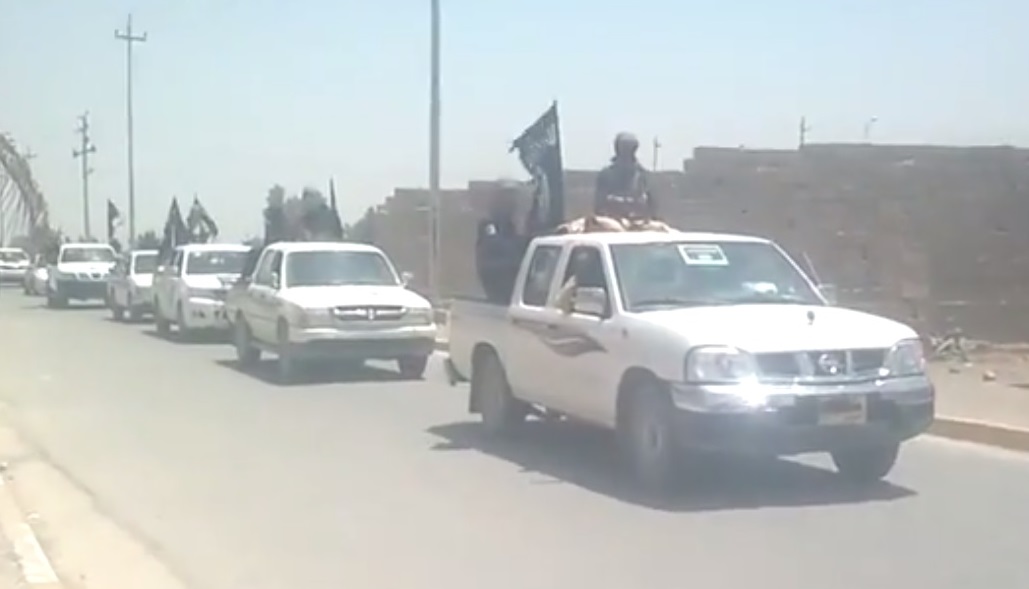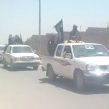
BRIEFS
Publication: Terrorism Monitor Volume: 12 Issue: 13
By:

WILL ISIS SPUR NEW STRATEGIC DIRECTIONS FOR SAUDI ARABIA?
Andrew McGregor
In some ways, the recent triumphs of the radical Sunni Islamic State of Iraq and Syria (ISIS) inside Iraq have alarmed Riyadh as much as Tehran. While the Saudis are still willing to support less radical Islamist movements in Syria and Iraq as part of a proxy war against Shiite Iran, there are fears in Riyadh that ISIS extremists, many of whom were recruited in Saudi Arabia, may eventually turn their attention to the Kingdom itself, threatening its hereditary rulers and the stability of the Gulf region. Iraq and Iran, meanwhile, accuse the Saudis of sponsoring terrorism and religious extremism throughout the Middle East.
Iraqi prime minister Nuri al-Maliki first accused Saudi Arabia of financing Iraqi terrorists in March. Echoing al-Maliki, the Shiite-dominated Iraqi cabinet issued a statement on June 17 in which they held the Saudis “responsible for supporting these [militant] groups financially and morally… [and for] crimes that may qualify as genocide: the spilling of Iraqi blood and the destruction of Iraqi state institutions and religious sites” (Arabianbusiness.com, June 17). Saudi Arabia reacted to the allegations by releasing a statement condemning ISIS as well as the Iraqi government:
The Iranian press has clearly stated the Kingdom is the largest sponsor of terrorism in the region (Javan [Tehran], June 14). Tehran considers Riyadh to be in complete support of efforts to drive Iraq’s Shi’a majority from the central government in Baghdad. After Iran’s President Hassan Rouhani announced Iran’s readiness to defend Shi’a holy sites in Iraq, Saudi Arabia’s foreign minister, Prince Sa’ud al-Faisal, warned against foreign interference in Iraq. While also pledging fighters to defend the Shi’a shrines of Iraq, Hezbollah secretary general Hassan Nasrallah was less eager to accuse the Saudis of directly sponsoring the radical Salafist ISIS movement, saying only: “It is uncertain that Saudi Arabia had a role” (Ra’y al-Yawm, June 17).
Syria has also pointed to Saudi Arabian responsibility for arming and funding ISIS operations in that country at the behest of Israel and the United States and in cooperation with Qatar and Turkey. According to Syrian state media: “No Western country is unaware of the role Saudi Arabia is playing in supporting terrorism and funding and arming different fronts and battles, both inside and outside Iraq and Syria” (al-Thawra [Damascus], June 12).
Saudi Grand Mufti Shaykh Abd al-Aziz Al al-Shaykh denounced ISIS on May 27, condemning their recruitment of Saudi youth for the war in Syria (al-Riyadh, May 27). The Kingdom has also stepped up its terrorist prosecutions, diving into a backlog of hundreds of cases mainly related to the 2003-2006 Islamist insurgency. Sentences of up to 30 years in prison are being issued in cases where there once seemed little inclination to prosecute (Saudi Press Agency, June 10). Earlier this year, King Abdullah issued decrees prohibiting Saudi citizens from joining the jihad in Syria or providing financial support to extremists.
Saudi foreign minister Prince Sa’ud al-Faisal recently told an Organization of the Islamic Conference (OIC) gathering in Jeddah that Iraqi claims of Saudi support for terrorism were “baseless,” but warned there were signs of an impending civil war in Iraq, a war whose implications for the region “cannot be fathomed” (Arabianbusiness.com, June 18; al-Arabiya, June 19). The Saudi government has blamed “the sectarian and exclusionary policies implemented in Iraq over the past years that threatened its stability and sovereignty” (al-Akhbar [Beirut], June 10). Officially, Saudi Arabia disavows sectarianism in Iraq and calls for a unified Iraqi nation with all citizens on an equal basis without distinction or discrimination (al-Riyadh, June 18).
Saudi authorities hold the Maliki government responsible for the present crisis and its sometimes bewildering implications, a stance summed up by former Saudi intelligence chief Prince Turki al-Faisal:
When Prince Bandar bin Sultan was removed from his post in April and replaced by Prince Muhammad bin Nayef it was interpreted as a sign Riyadh was prepared to vary from the hardline approach to Iran taken by the ex-intelligence chief (Gulf News [Dubai], May 21). The change reflects the Saudi government’s appreciation of the strategic situation it finds itself in as Washington shows greater reluctance to intervene directly in the affairs of the region. The lack of American consultation with the Kingdom during initial U.S.-Iranian discussions has convinced many in Riyadh that their nation must forge its own relationship with Iran to avoid a wave of conflict that could threaten the traditional Arab kingdoms of the Gulf region. The election of new Iranian president Hassan Rouhani has presented new possibilities in the Saudi-Iranian relationship, including a common approach to Turkey, whose Islamist government has supported the Muslim Brotherhood, now defined as a destabilizing threat in both Iran and Saudi Arabia. However, this remains conjecture at this point, as Riyadh follows a cautious approach to an Iranian rapprochement. While improved relations might prove beneficial, the Kingdom cannot afford to risk its self-adopted role as the guardian of Sunni Islam.
The rapprochement with Iran began tentatively earlier this year, with a series of secret meetings in Muscat and Kuwait followed by more official encounters between the Saudi and Iranian foreign ministers (National [Abu Dhabi], May 19). Diplomacy between the two nations appears to have been spurred by American urgings and the Kingdom’s realization that a reactive rather than pro-active foreign policy could leave the Saudis outside of a recalibrated power structure in the Middle East. There are fears in Riyadh that an ISIS offensive may result in Iranian troops joining the fight against Sunni extremists in Iraq, followed by the breakup of the country (al-Quds al-Arabi, June 15).
While Saudi Arabia appears to have backed off from its covert financial support of ISIS, private donations likely continue to flow from donors in the Kingdom and other Gulf states, though the recent looting of bank vaults and consolidation of oil-producing regions in Syria and Iraq mean that ISIS will be largely self-supporting from this point. Saudi anxieties over political change in the Middle East are reflected in the Kingdom’s growing defense budget, which now makes the nation of under 30 million people one of the world’s top six military spenders (Arabianbusiness.com, June 14).
THE CUTTING STRIKE: OPERATION ZARB-E-AZB IN NORTH WAZIRISTAN
Andrew McGregor
Pakistan’s military has spent months trying to convince their civilian masters of the necessity of mounting a large military offensive in the lightly-ruled North Waziristan tribal agency, currently a hotbed for Islamist extremists and foreign fighters. The objections of the political class were finally overcome following the June 8 terrorist attack on Karachi’s Jinnah International Airport, a devastating demonstration of strength by the militants and a further display of the inability of local security forces to contain extremist groups and the futility of continuing peace talks with the Tehrik-e Taliban Pakistan (TTP). On June 15, Pakistan’s military launched Operation Zarb-e Azb (“the cutting strike”), a massive offensive designed to clear North Waziristan of militants and extremists. The name of the operation appears to be part of an effort to lend a sense of Islamic legitimacy to the offensive – Azb was the name of the sword carried in battle by the Prophet Muhammad. Pakistani forces were also armed with a religious decision signed by over 100 clerics from various Islamic trends that declared their operations a jihad with the right to use an iron fist on extremists guilty of hundreds of murders (Hindustan Times, June 24).
The operation began with F-16 airstrikes that killed a claimed 105 militants, including the alleged planner of the Jinnah Airport attack, Uzbek commander Abu Abdur Rahman Almani (Dawn [Karachi], June 15). American CIA drone strikes have also targeted militants in the region, though these are not officially part of the government’s offensive. Despite the apparent tacit approval of Islamabad and the unlikelihood that American drone operations inside North Waziristan would be mounted independent of Pakistani authorities during a military operation in the region, Pakistan has still condemned recent drone strikes in North Waziristan as a violation of Pakistan’s sovereignty and territorial integrity (The Nation [Islamabad], June 14; June 19).
According to the top U.S. military commander in Afghanistan, Marine General Joseph Dunford, U.S. forces inside Afghanistan were not coordinating with the Pakistani offensive but were ready to intercept militants looking to wait out the operation inside Afghan territory (AP, June 17). The U.S. drawdown in Afghanistan is seen as a major factor in motivating Pakistani authorities to take the offensive in North Waziristan before the Afghan Taliban are able to consolidate their control of the border region in cooperation with local militants. Some 450,000 residents of North Waziristan have fled the offensive so far, taking advantage of a break in the campaign to allow their evacuation to Bannu, Peshawar, Kohat and, ironically, across the border in Afghanistan (Dawn [Karachi], June 22).
The success of Pakistani military operations in North Waziristan depends to a great extent on the willingness of Afghan president Hamid Karzai to seal the border, though appeals from Islamabad have yet to receive a positive response from Kabul. Karzai, who alleges the terrorist problem in his country has a Pakistani origin, is apparently seeking a commitment from Islamabad that the offensive will be part of a major operation to shut down cross-border militant groups such as the Haqqani Network that have operated with the connivance of Pakistan’s military intelligence service (News on Sunday [Islamabad], June 22). Targeting the Haqqani Network is also a condition of further U.S. military assistance (The News [Islamabad], June 13). Whether Afghan security forces actually have the ability to effectively seal the border remains an open question. Without the full cooperation of Afghan forces, some militants are believed to have already slipped across the border into Paktika and Khost provinces, while others may have scattered into the remote wilderness of North Waziristan’s Shawal Valley (News on Sunday [Islamabad], June 22). Afghanistan’s ambassador to India, Shaida Muhammad Abdali, recently observed that Pakistani authorities had not succeeded in their battle against extremism “because they are fighting those they don’t like, but not those whom they like” (The Hindu, June 24).
The offensive has encountered a generally favorable popular attitude from a populace grown tired of terrorist strikes, particularly after the Karachi Airport attack. Opposition criticism has been muted since the operation began. First-hand accounts of the fighting are hard to find, however, as the campaign is being tightly managed by the public relations arm of the Inter-Services Intelligence (ISI) unit. All journalists were ordered to leave North Waziristan on the first day of the offensive and nearly all accounts of the fighting since have originated with the military. Cell phone service has been cut off in the agency and internet service is practically non-existent (News on Sunday [Islamabad], June 22).
Pakistani tactics have included integrated operations involving Cobra helicopter gunships, snipers and artillery, deployments along the Afghan border to prevent militants from escaping, securing the boundaries of urban centers like Miranshah and Mirali, processing refugees through filtration points to weed out fugitive militants and the establishment of “surrender points” to encourage militants to lay down their arms without fear of immediate retribution.
The Army’s offensive reflects a shift in strategic thinking in the Pakistani military under the new leadership of Chief-of-Staff General Raheel Sharif, who has emphasized the danger of Islamist militancy in the tribal agencies over the traditional attempts by the Pakistani military to co-opt such groups in the interest of maintaining “strategic depth” in the event of a major conflict with India (Express Tribune [Karachi], June 24). While the political leadership in Islamabad has reluctantly agreed to the necessity of a major military operation in the tribal region, it continues to fear a major backlash from terrorist cells based in Pakistan’s poorly secured urban centers. Creating a local administration capable of maintaining order and security in North Waziristan after the conclusion of active operations will also pose a major challenge to Islamabad.





